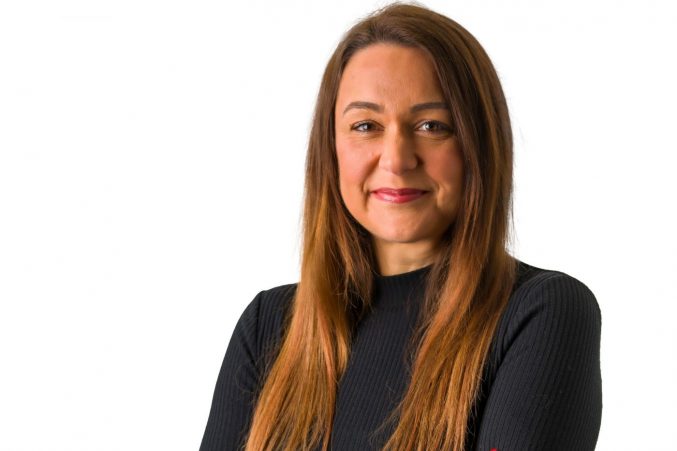The role of specialist finance in post-Covid recovery
By David Craik

Bridging and Specialist Finance experts are optimistic that the industry will keep surging over the next 12 months outpacing high street competition.
Speaking at a specialist finance session at the Mortgage Business Expo in Leeds last week industry experts said that by July 2022 demand would be driven by businesses paying off pandemic debt, property developers and self-builders and the acquisition of distressed firms.
“By next July the market will still be very buoyant,” said Chris Sellars, chief executive of Bridge Help. “The Government has borrowed £350billion and at least £180billion is lurking out there. I don’t think people will have spent it by Christmas. By the summer of 2022 they will be coming to us looking to top it up. I think the High Street will have retracted and we will be really busy.”
Those ‘lurkers’ include experienced property investors who have sat on their hands during the pandemic because of valuation concerns.
“There is a lot of money out there amongst these investors,” said Chris Parr, senior business development manager at MT Finance. “By the back end of this year and the start of next we will see them come back in to pick up opportunities. We are going to see repossessions kicking through adding to the stock levels at the auctions and levelling out values. It is going to be a strong market and one to be in. It will overrule the High Street.”
Ian Harrison, operations director at Affirmative Finance, also sees repossession numbers ticking up.
“Anyone savvy enough now to arrange finances such as revolving overdraft facilities could [take advantage],” he said. “I think there will be a levelling off, maybe even a slight decline in house prices. I also see more home building being key including self-build which will be absolutely huge.”
Another, perhaps less welcome driver will be from businesses trying to deal with pandemic debt and liabilities. “There are big debts out there including Bounce Back loans,” said Andrew Hunt, operations director at TFG Capital. “When things start to churn from September onwards businesses will try and recover money. We will see companies, who we haven’t seen before, enter the market to take secured products to fill that gap or to buy firms which have been sleepwalking in the pandemic.”
Despite the bullishness the experts acknowledged that structural and operational challenges remain within the industry. They tackled a series of questions about these.
PACE
The first was whether bridging really is the ‘fast finance’ its hyped up to be?
“Generally, when someone comes to us for a bridging transaction it is because they need speed and flexibility,” said Gary Lomax, regional account manager at Together Money. “But it is also about service, the quality we can offer and the customer journey. If we get that right then we will complete in a timescale which is right for the customer. We have the facility to help someone who has bought in an auction and needs to complete in 4 days or those with four- or five-week timelines. It is transaction dependent.”
Lomax added that because of an increase in chain breaks over the last 12 months it has had to change processes to quicken up completions.
“We created our AVM HomeTrack digital platform [for automatic property valuations],” he said. “It cuts physical valuations out of the process, so we don’t have to wait.”
Parr agreed that speed is ultimately why people choose bridging but that careful consideration needs to be given to each customer request.
“You need to understand the client’s position and why they have a so-called deadline of ‘by the end of Friday’,” he said. “Don’t get me wrong some deals do need to be done in four or five days but it is all about whether the stars align. Are you stepping into a deal which has fallen over? Is there a valuation in place and are the legals already underway? Ultimately, we are only as good as the broker and the clients solicitor on delivering in that timeframe. It’s not just throw it at the lender and let them take over.”
RATES
The next question focused on rates. As they reduce across the bridging loan market, are we seeing a ‘race to the bottom’, or a healthy response to increased popularity and competition?
“If I am a borrower or a broker then I like seeing lower rates,” said Sellars. “It is more popular, but it is absolutely a race to the bottom. A year ago, a rate of 1% per month was commonplace. We are now seeing headline rates of 0.49%, so sub 6% a year. The reason is that there is an influx of capital coming into the market from huge funds and it must be deployed. We have forgotten 2008 when we had quick, easy, cheap money. We may not be seeing the 120% LTVs of that time, but we are seeing 85%. We are fuelling demand that bucks every trend in the economy.”
Hunt agreed: “Property has always been very attractive and the access to the market has never been wider. A new fund is popping up every single day with new private money and to make a splash they come out with a low number.”
However, he also sees beyond the headline rates.
“An advertised rate might come out for a sub-50% LTV bridge on a very safe residential asset at 0.49%,” he explained. “But when the deal is written out 6 weeks down the line that rate may have changed due to factors within the property itself.”
RISING COSTS
The next question looked at the direct Covid impact on rising material costs and on-site delays. Have these affected the development market and do these trends look set to continue or likely to settle post-Covid?
Parr said deals it has been funding have been hit by both a labour and materials shortage. “Labour is hard to get hold of as people sitting at home looking at the same four walls all day have brought builders in to do work for them,” he said. “These one-off jobs are more profitable than working for a developer at a set price. Materials are stretched because of these home projects as well as imports becoming harder due to Brexit. It is difficult to get hold of plaster!”
He said that the shortages were impacting on project execution and developer exits. A small conversion of a commercial property into 6 or 7 flats, for example, which should be a 6- or 7-months job is now taking 12 to 13 months.
“Developments have been delayed and they need extra time to finish off,” he said. “There has been a material change in timelines. Costs have impacted developers heavily with some climbing by 40%. They are wondering if they are going to make a profit.”
He believes the situation will improve as homeowner demand declines and supply issues iron themselves out.
Harrison also sees issues with exits due to Covid. “There will be rent arrears so landlords won’t have rental income coming in,” he said. “It is easy to lend the money out but collecting it back in is a lot more difficult. Generally, we are seeing a lot more tyre-kickers putting deals through which are just unrealistic.”
PEER TO PEER
This led on to the next area of debate around finance options and regulation. This included a question about the role of peer-to-peer lending platforms in the future of specialist finance. What are some of the benefits, and indeed potential pitfalls, that borrowers and other market players should be aware of when it comes to this model?
Hunt said peer to peer, off the back of some high-profile failures, feels like a “bit of a black sheep in specialist finance’. He added: “There are success stories, and it is a good way when operated properly to get in retail investors. But of those that failed there was very little governance with investors receiving nothing from unstable assets that could never be corrected.”
He advised brokers or borrowers inviting a peer-to-peer firm to provide terms for a client to be cautious.
“You are going to find a streamlined business which is normally very software focused,” he said. “But say that you have a client who needs a loan in 6 weeks. You have a peer-to-peer operator going out to fill that pot of retail investors but it takes time to reach 100%. Do you wait or go back to market with a lot less time to fulfil the clients need?”
REGULATION
The question around regulation pondered whether it should be more widespread for example around undisclosed proc fees, reaching into as-yet unregulated spaces in the specialist finance market.
Charlotte Rutter, head of marketing at Roma Finance, said she would welcome regulation ‘from the FCA or another trade body’ because of the need to treat customers fairly and disclose all fees.
“Everything should be disclosed, everybody should know where their money is going, and what they are paying for,” she said. “I think high and opaque fees harm the appeal and growth of the industry. Whether it is regulated or not we should be acting in a regulated way.”
Sellars echoed Rutter’s views on regulation despite having some cynicism around its implementation.
In a previous role in the world of wealth management he said greater transparency didn’t always lead to greater understanding.
“You would have 20 pages with the information on fees, percentages and commissions tucked away inside it,” he said. “You’d need a degree in all sorts of subjects to understand what fees were actually being charged. So, while I wholly support the concept of regulation there should be some pointer in it to ensure that customers know exactly what they are being charged.”
He pointed to existing dark arts in the industry.
“You need to know who is getting paid what. Only last week we had a broker saying they wanted ‘4% in the arrangement fee’. They wanted £169,000 commission for referring the job to us!” he says.
Harrison pointed to the problem of differentials. “This is where the lender gives a rate of say 1.75% but the reality is 1.2% and the broker is getting 0.5% a month as a commission,” he said. “There are still companies out there doing this under the radar even though they say they have no fees attached to the loans. It is stealth charging.”
That should be consigned to the past. The post-Covid future offers opportunity for change.

David Craik is a freelance journalist writing news, feature articles, blogs and guides for national newspapers and magazines. His main areas of interest include finance, property and investments.










You must be logged in to post a comment.